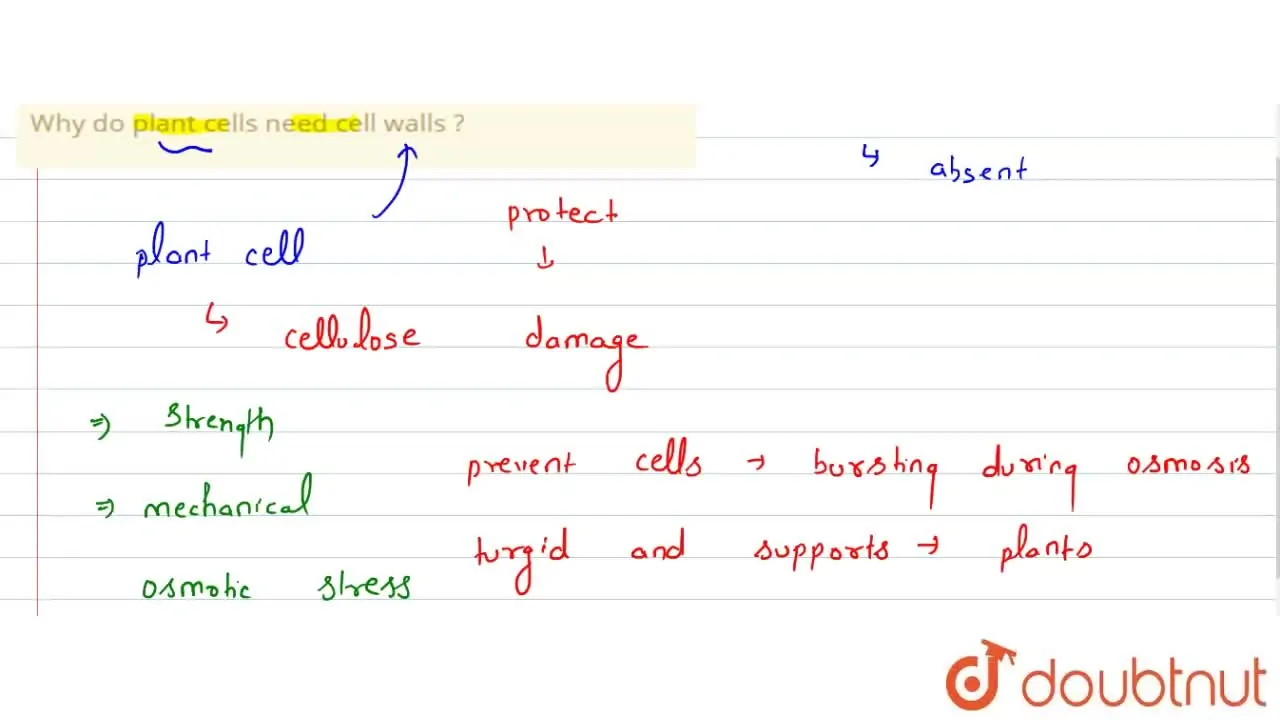Why do plant cells need cell walls ?
The cell wall surrounds the plasma membrane of plant cells and provides tensile strength and protection against mechanical and osmotic stress
Related Playlists
- BOOK - PEARSON IIT JEE FOUNDATIONCHAPTER - CELL-STRUCTURE AND FUNCTIONSEXERCISE - Track Your Learning - I10videos
CELL-STRUCTURE AND FUNCTIONS
- BOOK - PEARSON IIT JEE FOUNDATIONCHAPTER - CELL-STRUCTURE AND FUNCTIONSEXERCISE - Track Your Learning - II8videos
CELL-STRUCTURE AND FUNCTIONS
- BOOK - PEARSON IIT JEE FOUNDATIONCHAPTER - CONSERVATION OF PLANTS AND ANIMALSEXERCISE - COMPETITION CORNER43videos
CONSERVATION OF PLANTS AND ANIMALS
Similar Questions
Assertion : To countract the increases in turgour pressure in plant cells, the cell wall produces an equal and opposite pressure, i.e. , wall pressure .
Reason : When plant cells undergo endomosis, they swell but do not burst.View SolutionCompare the statements a and b Statement a. To counteract the increase in turgor preassure in plant cells the cell wall produces an equal and opposite pressure, i.e., wall pressure Statement b.When plant cells undergo endosmosis, they swell but do not burst .
View SolutionCompare the statement A and B
Statement A : To counteract the increase in turgor pressure in plant cells, the cell wall produces an equal and opposite pressure, i.e., wall pressure.
Statement B : When plant cells undergo endosmosis, they swell but do not burst.View SolutionDifference between animal and plant cell || cell wall || plasmodesmata
View SolutionQuestion stimulus:-
Why do plants need Nitrate ions?View SolutionA plant cell without cell wall is called
View SolutionWhy are the following important to a plant cell?
(i) Cell wall
(ii) Chloroplast
(iii) Mitochondria
(iv) Nucleus.View SolutionWhy do plant cells posses large sized vacuole?
View SolutionWhy do plant cells posses large sized vacuole?
View SolutionWhich plant cell have primary cell wall only ?
View Solution


